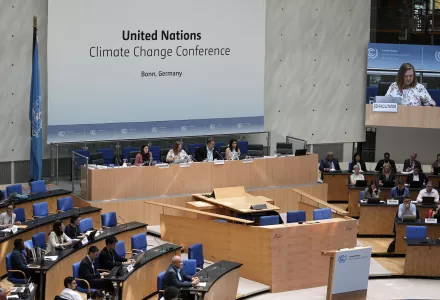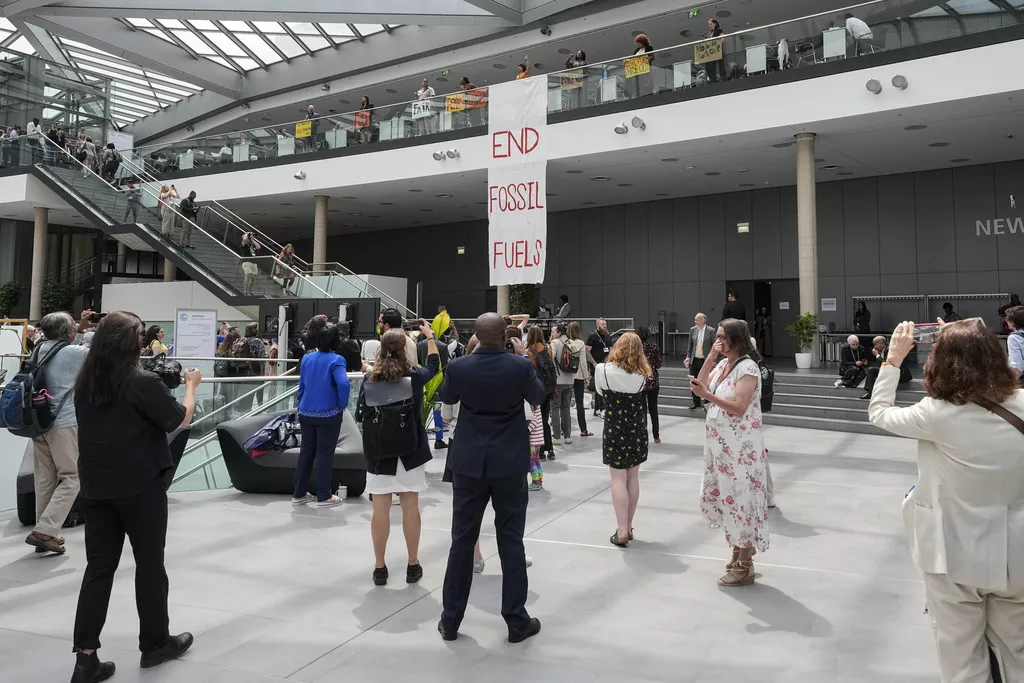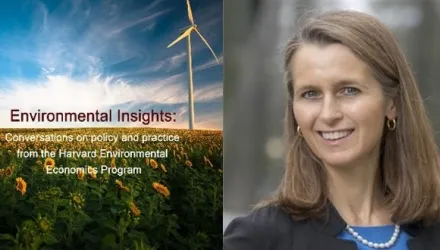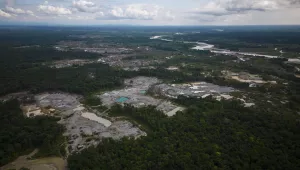
In June, delegates from 198 countries will meet at the World Conference Center in Bonn, Germany, to prepare for the Twenty-Ninth Conference of the Parties (COP29) to the United Nations Framework Convention on Climate Change (UNFCCC) later this year in November. The UNFCCC Secretariat hosts such “intersessional” meetings at least once every year at its headquarters in Bonn to ensure that the COP continues to effectively address the causes and impacts of global climate change.
On the agenda will be progressing discussions on targets for the New Collective Quantified Goal for Climate Finance (NCQG) agreed to at COP21 in Paris, advancing conversations on Article 6.2 and 6.4 for adoption at COP29, and assessing progress made by the Adaptation Committee (AC), among other critical items.
The intersessional conference stands as one of the most important regular milestones in international climate negotiations, but its relatively unknown status compared to the COPs has made it difficult to understand its place in international climate policymaking.
What?
The Bonn Climate Change Conference is an annual United Nations Climate Conference that serves as the mid-year meeting of the Subsidiary Body for Implementation and the Subsidiary Body for Scientific and Technological Advice. The conference is formally known as the Sessions of the UNFCCC Subsidiary Bodies (SBs). Along with the annual Conference of the Parties (COP), it is the only other regular climate summit hosted by the UNFCCC.
The Subsidiary Bodies meet twice a year: in Bonn in the middle of the year and at the COP toward the year’s end. During the mid-year session, UNFCCC parties typically negotiate mechanisms for implementing agreements set at the previous COP, such as language related to UNFCCC bodies or frameworks, in different negotiation workstreams. These workstreams will adopt draft conclusions that are then submitted in a plenary meeting of the Subsidiary Bodies to be adopted by all parties as formal recommendations at the next COP.
The results of the negotiations in Bonn are highly influential on decisions made at the COP. Recommendations made at the SBs frequently appear in final decisions acted upon by parties at the COP. At the 2023 Bonn Climate Change Conference, for example, delegates agreed on a draft structure of the Global Stocktake decision. This agreement in Bonn helped delegates at COP28 focus on determining more ambitious language for the adopted decision which ultimately included one of the event’s most notable outcomes, the inclusion of language to “transition away from fossil fuels.” In this way, the mid-year sessions serve as a crucial preparatory stage for the subsequent COPs, lacking the “supreme” decision-making authority that comes from the year-end gatherings.
Who are the key players in attendance?
The Subsidiary Body for Implementation (SBI) is one of two permanent subsidiary bodies to the United Nations Framework Convention on Climate Change (UNFCCC) that advises the governing bodies (COP, CMA, CMP) on the progress of implementing their decisions. The SBI is responsible for facilitating negotiations on financial and technical support to developing country parties to the UNFCCC, and matters related to finance, capacity-building, gender and climate change, in addition to other items.
The Subsidiary Body for Scientific and Technological Advice (SBSTA) is the other permanent body to the UNFCCC that advises the governing bodies (COP, CMA, CMP) on scientific knowledge related to climate change. It serves as the “link” between scientific advisors at the IPCC and policymakers serving in party delegations at the COPs. The SBSTA is responsible for facilitating negotiations on matters related to Article 6 of the Paris Agreement and technical reviews of national greenhouse gas inventories of developed nations, in addition to other items.
The Subsidiary Bodies advise the Conference of the Parties and adopt draft conclusions, frequently as joint conclusions, that are provided as recommendations to the COP. All parties to the UNFCCC are members of both permanent bodies.

All parties to the UNFCCC may send official delegations to the Subsidiary Body sessions. These are national government officials. Typically, the current COP Presidency (Azerbaijan) will send a larger delegation to build relationships with party delegates and observe negotiation progress that will inform the ambition of the upcoming COP.
Intergovernmental organizations, other U.N. agencies and secretariats, and non-party stakeholders (youth, industry, Indigenous representatives) also attend the SBs and participate as observers. This setup of different observers, parties, and U.N. staff at the conference is identical to the COP and the badge system identifying individuals’ respective status is the same. Accreditation can likewise be obtained through the UNFCCC Online Registration System for those interested in attending. Members of the media may also attend to report on the outcomes of the session negotiations but, like during the COP, they are not permitted to enter negotiations.
Where?
The Bonn climate talks will take place at the World Conference Center in Bonn, Germany.
The event space is directly adjacent to the headquarters of the UNFCCC Secretariat at the United Nations Campus Bonn.
When?
Each year in May or June. In 2024, the Subsidiary Body meetings will occur from June 3-13, 2024.
Similar to a COP, negotiating blocs (i.e. Alliance of Small Island States [AOSIS]; G77 + China) are invited by the UNFCCC Secretariat to participate in pre-sessional meetings in the days before the SB sessions.
What is going to happen at the 2024 Bonn Climate Change Conference?
The Subsidiary Bodies at the 2024 Bonn Climate Conference are anticipated to consider the following items, among others, in their Provisional Agenda:
Matters related to Article 6 of the Paris Agreement
The Subsidiary Body for Scientific and Technological Advice is expected to reconsider matters related to Article 6, specifically Paragraphs 2 and 4, of the 2015 Paris Agreement. These paragraphs deal with market-based approaches between countries to exchange carbon credits generated from reducing GHG emissions to meet targets under their Nationally Determined Contributions.
Article 6 negotiations are viewed as crucial to mobilizing collective global action on emissions reductions. According to a 2022 analysis, the multinational investment bank Morgan Stanley estimated that the Paris Agreement’s voluntary carbon-offset market has the potential to facilitate the annual reduction of gigatons of emissions and grow to $250 billion by 2050.
While Parties were able to reach an agreement on non-market-based approaches under Article 6, they were unable to agree on market-based approaches under Article 6.2 (the transfer of emissions reductions through bilateral or multilateral agreements) and 6.4 (mechanisms for validating and issuing high-quality carbon credits under a voluntary transfer framework) at COP28 in Dubai.
The goal of the Parties at the 2024 Bonn Climate Conference will be to recommend a draft decision on both Article 6.2 and 6.4 for adoption at COP29 in Azerbaijan.
A Technical Expert Dialogue on the New Collective Quantified Goal on Climate Finance (NCQG)
Both the Subsidiary Body for Scientific and Technological Advice and the Subsidiary Body for Implementation are expected to hold a Technical Expert Dialogue on the New Collective Quantified Goal on Climate Finance. The NCQG was established under the Paris Agreement in 2015 to mobilize $100 billion per year to support climate mitigation and adaptation action by 2025.
The Technical Expert Dialogue will be part of several taking place before COP29 in Azerbaijan and will provide Party and non-party stakeholders the opportunity to exchange ideas on the design and implementation of the NCQG.
A decision on the NCQG is anticipated to be a major outcome of COP29. In remarks before the United Nations Environment Assembly in February 2024, COP29 President-Designate Mukhtar Babayev labeled the goal as a “key focus at COP29.”
There is no specific goal for Parties at the 2024 Bonn Climate Conference on the Technical Expert Dialogue on the NCQG other than advancing discussions in preparation for alignment at COP29 in Azerbaijan.
The Third Glasgow Dialogue
The Subsidiary Body for Implementation is expected to hold the third and final session of the Glasgow Dialogue. The series of dialogues was established at COP26 in 2022 to “discuss the arrangements for the funding of activities to avert, minimize, and address loss and damage associated with the adverse impacts of climate change.”
Given the successful operationalization of the Loss and Damage Fund at COP28 in Dubai, a mandate for the Third Glasgow Dialogue remains unclear as of publication.
There is no specific goal for Parties at the 2024 Bonn Climate Conference on the Third Glasgow Dialogue other than continuing exchanges between Parties and non-party stakeholders.
Report of the Adaptation Committee and Review of the Progress, Effectiveness, and Performance of the Adaptation Committee
Both the Subsidiary Body for Scientific and Technological Advice and the Subsidiary Body for Implementation are expected to reconsider a report of the Adaptation Committee and progress made by the committee.
Discussion of whether on whether to conduct a review of the Adaptation Committee’s work and the Report of the Adaptation together or individually hampered consensus at COP28 but is expected to be resolved by Parties in the near term.
The goal of the Parties at the 2024 Bonn Climate Conference will be to accept the findings of the report and complete a review of the progress of the Adaptation Committee for adoption at COP29 in Azerbaijan.
Harrison, Gabriel. “Explainer: What is the Bonn Climate Change Conference?.” Belfer Center for Science and International Affairs, Harvard Kennedy School, May 30, 2024


